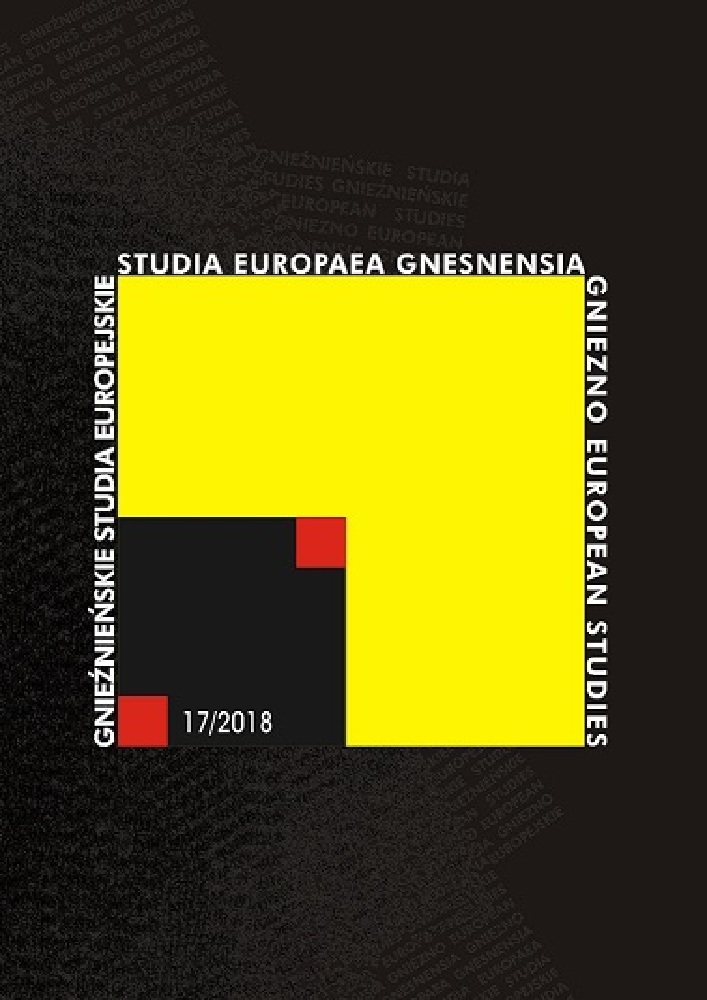Abstract
The text explores the connections between the ideas of Friedrich Nietzsche and Swiss historian Jacob Burckhardt regarding past and contemporary culture. The focus here is on both thinkers’ highly negative assessment of modernity as an era which does not match the great past times of European culture, especially the noble civilizations of ancient Greece and the Italian Renaissance. The lamentable state of modernity is seen and analyzed in confrontation with those sublime past epochs, with their ethos of individuality, immorality, violent passions and common ambition for greatness. The article ends with a conclusion that although both thinkers were disappointed with times they lived in, it was Nietzsche who pushed his critique of modernity to the extreme, calling for a radical and imminent breach with the failed history and founding a new one, one which would create place only for an elite group of outstanding individuals, while Burckhardt was much more reserved. Although a pessimist too, he kept a desperate faith in the autotelic value of European culture’s spiritual continuum and did not negate its heritage.
Riferimenti bibliografici
Burckhardt J. 1957, Historische Fragmente, Stuttgart.
Burckhardt J. 1999, Judgments on History and Historians, tłum. H. Zohn, Indianapolis.
Burckhardt J. 1943, Reflections on History, tłum. M.D.H., London.
Burckhardt J. 1960, The Civilization of the Renaissance in Italy, tłum. S.G. Middlemore, New York.
Burckhardt J. 1999, The Greeks and Greek Civilization,tłum. S. Stern, New York.
Burckhardt J. 1982, Über das Studium der Geschichte: Der Text der Weltgeschichtlichen Betrachtungen, Münich.
Coll A.R. 1999, Foreword, [w:] J. Burckhardt, Judgments on History and Historians, tłum. H. Zohn, Indianapolis, s. XVII-XXII.
Gontier T. 2006, Nietzsche, Burckhardt et la ‘question’ de la Renaissance, Noesis, 10, s. 49-71.
Hinde R.J. 2000, Jacob Burckhardt and the Crisis of Modernity, Montreal-Kingston.
Hollingdale R.J. 2001, Nietzsche, Warszawa.
Kahan A.S. 1992, Aristocratic Liberalism. The Social and Political Thought of Jacob Burckhardt, John Stuart Mill and Alexis de Tocqueville, Oxford.
Nietzsche F. 2000, Antychrześcijanin. Przekleństwo chrześcijaństwa, przeł. G. Sowiński, Kraków.
Nietzsche F. 1908, Ludzkie, arcyludzkie, przeł. K. Drzewiecki, Warszawa.
Nietzsche F. 1912, Niewczesne rozważania, przeł. L. Staff, Warszawa.
Nietzsche F. 2012, Notatki z lat 1885-1887, przeł. M. Kopij, G. Sowiński, przedmowa A. Lewandowski, Łódź.
Nietzsche F. 2012a, Notatki z lat 1887-1889, przekł. i przedmowa P. Pieniążek, Łódź.
Nietzsche F. 1993, Pisma pozostałe 1862-1875, przeł. B. Baran, Kraków.
Nietzsche F. 1907, Poza dobrem i złem, przeł. S. Wyrzykowski, Warszawa.
Nietzsche F. 1986, Sämtliche Briefe. Kritische Studienausgabe 1-5, hg. von G. Colli und M. Montinari (KSB), Berlin-New York.
Nietzsche F. 1967, Sämtliche Werke. Kritische Studienausgabe 1-15, hg. von G. Colli und M. Montinari (KSA), Berlin-New York.
Nietzsche F. 1905, Tako rzecze Zaratustra, przeł. W. Berent, Warszawa.
Nietzsche F. 1910, Wędrowiec i jego cień, przeł. K. Drzewiecki, Warszawa.
Nietzsche F. 1910-1911, Wiedza radosna przeł. L. Staff, Warszawa.
Nietzsche F. 2004, Zmierzch bożyszcz, czyli jak się filozofuje młotem, przekł. i posłowie P. Pieniążek, Kraków.
Pieniążek P. 2013, Historia i nowoczesność. Nietzsche wobec historiozofii wczesnoromantycznej (F. Schlegel, Novalis), [w:] M. Kruszelnicki, W. Kruszelnicki (red.), Nietzsche i romantyzm, Wrocław, s. 115-134.
Pieniążek P. 2004, Dekadencja, pozory, Dionizos (Posłowie) [w:] F. Nietzsche, Zmierzch bożyszcz, czyli jak filozofuje się młotem, przeł. P. Pieniążek, Kraków, s. 95-110.
Pieniążek P. 2012, Nietzsche – agon (w) Grecji i (w) nowoczesności, [w:] B. Banasiak, P. Pieniążek, Nietzsche i tradycja antyczna, Toruń, s. 13-33.
Pieniążek P. 2015, Współczucie u Rousseau, Schopenhauera i Nietzschego, Humanistyka i Przyrodoznawstwo 21, s. 245-262.
Reget N. 2008, A ‘Wondrous Echo’: Burckhardt, Rennaissance and Nietzsche’s Political Thought, [w:] H.W. Siemens, V. Roodt (red.), Nietzsche, Power and Politics. Rethinking Nietzsche’s Legacy for Political Thought, New York, s. 629-665.
Ruehl M.A. 2015, The Italian Renaissance in the German Historical Imagination, 1860-1930, Cambridge.
Siemens H.W. 2009, Nietzsche’s Critique of Democracy (1870-1886), Journal of Nietzsche Studies, 38, s. 20-37.
Sigurdson R. 2004, Jacob Burckhardt’s Social and Political Thought, Toronto.
Von Martin A. 1945, Nietzsche und Burckhardt: Zwei Geistige Welten im Dialog, Basel.
